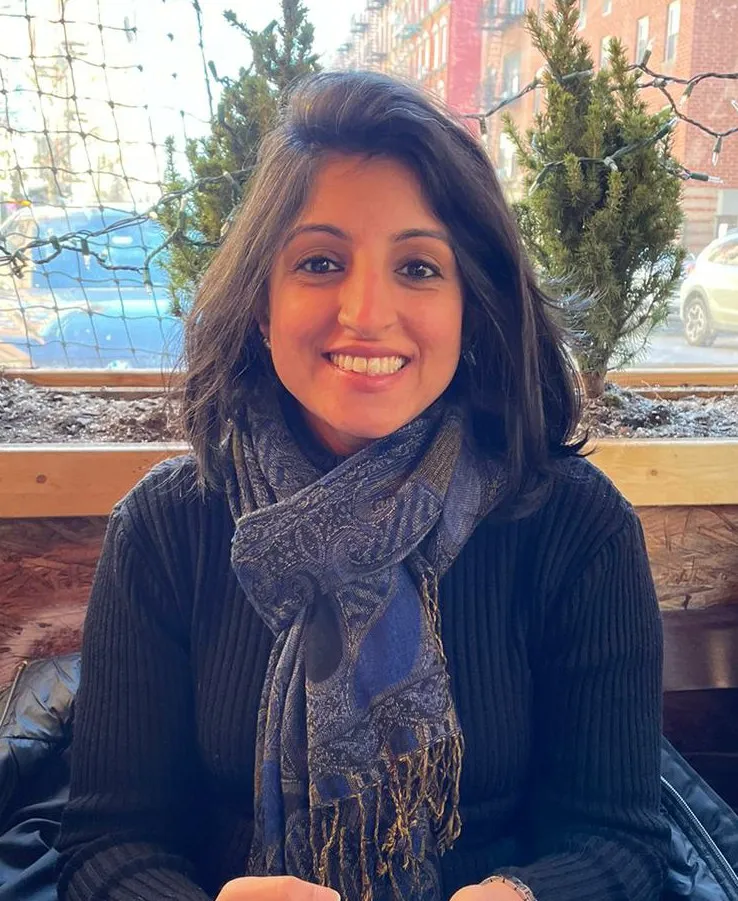How this woman entrepreneur became part of the reverse brain drain and started a successful boutique studio
Niraali Parekh is the Founder of Bokaap Design, a boutique studio that has launched over 30 brands and worked on 200+ projects in India and abroad. The full-service studio offers branding, packaging, and tech services.
When Niraali Parekh was a student of graphic design at Savannah College of Art and Design in the US, she attended a seminar where one of the partners from Pentagram Design was walking the students through some of the firm’s work.
Inspired by the idea of a collaborative studio environment, the seed to set up a boutique design studio where experts from different fields like design, content creation, marketing, and technology could come together as a collaborative team was sown in her mind.

Niraali Parekh, founder, Bokaap Design
So, Niraali became a part of the "reverse brain drain" around 2009-2011.
“Like me, hundreds of American-educated Indians were coming back to India to join their family businesses or set up their own companies. So, it was a natural conclusion that I would set up my studio Bokaap Design in Mumbai. I happened to be at the right place at the right time as some of my early clients were from this group,” she recalls.
Niraali comes from a family of entrepreneurs – her great-grandfather was a plywood trader in Mumbai who started his shop in the early 1900s. Her grandfather took this ahead, expanded the trade and was instrumental in Vile Parle becoming the hub of traders for construction materials, often giving loans to new entrants to become businesspeople. Eventually, her father took over, diversified the business, and started multiple new ventures: some succeeding and some failing.
“I often tell people that our parents or grandparents had their own ‘startups’ long before it even became a term. And that too with having to support a spouse and young kids when they were young and starting themselves,” she says.
In 2010, when Niraali set up , there were not many design studios in India. Large advertising agencies would set up internal studios to take care of branding work, but there were very few standalone boutique design studios in India. With her graphic design skills, web design, and web development, she set out to get any and every type of project that came her way.
“I was what they call today a ‘UX unicorn’,” she says with a laugh.
Setting out to problem-solve
With no business plan, excel sheets with numbers and targets, Niraali set out to “solve problems”, banking on her talent and laptop.
“Design - branding, packaging or tech platforms - is at the deepest level of problem-solving. I started with a few small projects, working almost like a freelancer from my bedroom, taking whatever I got. Odd design projects that I did for parents' friends led me to more significant startups started by their children. These became my gateway into more focused branding and tech projects. Finally, in year two I moved into an office. I hired my first employee, and things have steadily and organically grown ever since,” she says.
The strategy was to become industry-agnostic – and Bokaap Design took up as many projects as Niraali could personally oversee.
Initially, it started as a visual communication studio, and over time, became more focused and offered expertise in branding, packaging, and UX/UI projects.
“We design your brand identity, from logo to website to packaging, so that you can announce your presence to the world. In addition, we continue our partnership to craft digital and direct marketing creatives to engage your customers and meet your business goals. We execute your digital transformation from enterprise platforms to mobile apps with the right technology stack for your product. Our clients include B2B, B2C, and B2B2C companies,” she says.
Human-centred design
Over the last 11 years, Bokaap Design has delivered more than 400 projects for hundreds of domestic and international clients.
“Some popular brands we have worked with are McDonald's, The Health Factory, Coco Custo, Chargepool, MProfit, Bulk MRO, JLL, Citibank, and MyGlamm. In addition, we have worked with countless other businesses helping them launch or ‘go-to market’ with our logos, packaging, app designs, or websites. We also work with think-tanks to help them package the reports and policy papers they publish. We are long-term growth partners to launch and promote businesses,” she says.
Niraali admits that in the last five years, competition has grown tremendously. Earlier, there were very few design studios doing what they did. But ever since the tech boom, businesses understand the importance of UX/UI and branding, and this has increased the demand for designers/design studios providing the space for many people to start their studios.
“We are focused on human-centred design, which means putting people at the core of our work. We understand the people behind the product(s), the people the product is intended for, and work as a team through ideations and iterations with the people designing the product. Design thinking is a human-centred design approach, and we follow this process for all our projects,” she says.
Bokaap is primarily self-funded though Niraali received some investment from family that she used to acquire office space. The business, she claims, has grown steadily by 20 percent every year.
During the pandemic, many of her hospitality and travel space clients shut their businesses amid the lockdown. These were her fixed income revenue-based clients. On the flip side, she also gained many clients globally who were looking to transform digitally.
Niraali is optimistic about the future.
“My vision is to take up UX/UI projects in the AR/VR space and wearable technology. I want to focus on B2B tech, edtech, medtech and fintech spaces. My business up to this point was 80 percent in India and 20 percent in global clients. I want to grow my business abroad so there is a balance of clients from across the globe,” Niraali says.
Edited by Teja Lele







